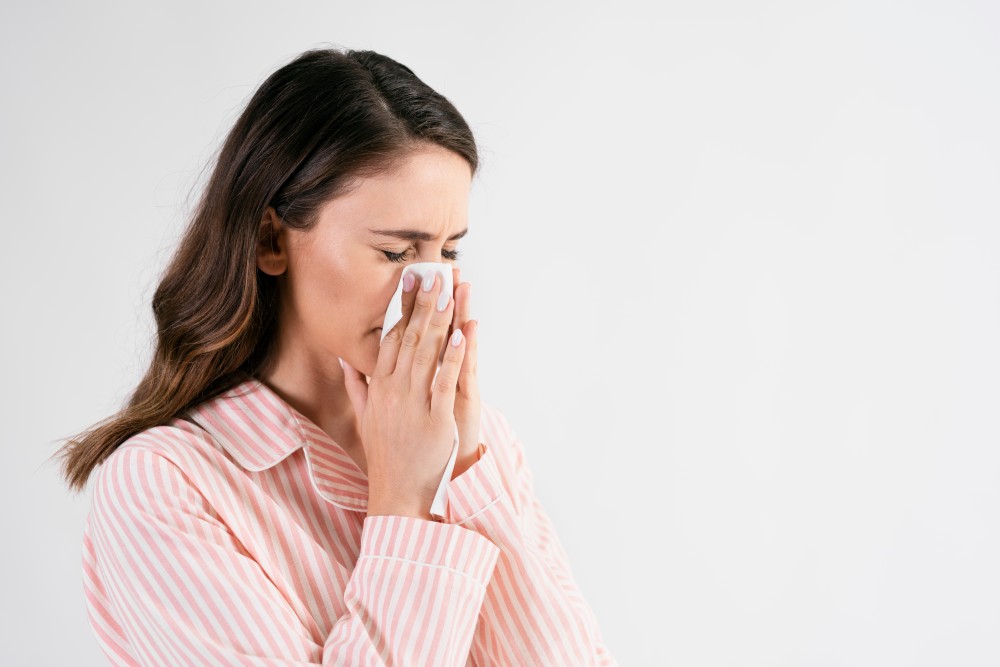Allergies have become an increasingly common health concern in today’s fast-paced world. From seasonal pollen to food sensitivities, allergic reactions can range from mild discomfort to severe, life-threatening conditions. The good news is that allergy prevention is entirely possible with a combination of lifestyle adjustments, timely allergy treatment, and effective use of allergy medicine. This guide will help you understand the causes of allergies, how to prevent them, and ways to manage allergy symptoms effectively.

Understanding Allergies
An allergy is your immune system’s overreaction to a substance that is usually harmless, such as dust, pollen, or certain foods. These substances are called allergens. Types of allergy vary widely and include skin allergy, respiratory allergies, food allergies, and drug allergies. Common allergy symptoms include sneezing, itching, watery eyes, rashes, and even breathing difficulties. Identifying the specific type of allergy is crucial for effective prevention and treatment.
Common Types of Allergy
- Respiratory Allergies: Caused by allergens like pollen, dust mites, and pet dander, these allergies often result in sneezing, nasal congestion, and asthma attacks.
- Food Allergies: Reactions to foods such as nuts, seafood, or dairy can cause digestive problems, hives, or even anaphylaxis in severe cases.
- Skin Allergy: This includes conditions like eczema, contact dermatitis, and hives, often triggered by chemicals, plants, or insect bites.
- Drug Allergies: Certain medications can cause adverse reactions ranging from mild rashes to severe systemic issues.
Understanding types of allergy helps you take preventive measures and choose the right allergy medicine or allergy treatment.
Preventive Measures for Allergy
Prevention is always better than cure. Simple steps can significantly reduce your risk of allergic reactions:
- Keep your environment clean: Regular cleaning reduces exposure to dust mites and pet dander.
- Avoid known allergens: If you are allergic to pollen, staying indoors on high-pollen days or using air purifiers can help.
- Maintain good hygiene: Washing hands and bathing after outdoor activities can remove allergens from your body.
- Wear protective clothing: When gardening or doing outdoor work, long sleeves and gloves can prevent skin allergy.
- Monitor your diet: For food allergies, carefully read ingredient labels and avoid triggering foods.
Allergy Testing
One of the most effective ways to prevent allergic reactions is by undergoing an allergy test. This test helps identify specific allergens responsible for your symptoms. Tests may include skin prick tests, blood tests, or elimination diets. Once you know the exact cause, targeted preventive strategies and treatments can be implemented.
Effective Allergy Treatment Options
If you already experience allergy symptoms, prompt allergy treatment can make a significant difference. Treatment options include:
- Allergy Medicine: Over-the-counter or prescription medications like antihistamines, decongestants, or corticosteroids help relieve symptoms. Allergy Tablets are commonly used for daily prevention of mild to moderate allergic reactions.
- Immunotherapy: Allergy shots or sublingual tablets gradually reduce your immune system’s sensitivity to allergens.
- Topical Treatments: Creams or ointments are particularly useful for managing skin allergy symptoms.
- Emergency Care: For severe reactions, epinephrine injections may be necessary to prevent life-threatening conditions.
Choosing the right allergy medicine depends on the severity and type of your allergy. Consulting a healthcare provider ensures effective and safe management.
Lifestyle Tips for Everyday Allergy Prevention
In addition to medication, lifestyle changes play a vital role in allergy prevention:
- Maintain a clean home environment: Regular vacuuming, dusting, and washing bedding reduces allergens.
- Monitor outdoor conditions: Stay informed about pollen counts and air quality in your area.
- Strengthen your immunity: A balanced diet rich in vitamins and minerals can help your body resist allergic reactions.
- Exercise regularly: Physical activity supports respiratory health and boosts overall immunity.
- Stay hydrated: Drinking sufficient water helps your body flush out toxins and allergens efficiently.
By integrating these habits with allergy treatment and proper allergy medicine, you can maintain a healthier and allergy-free lifestyle.
When to See a Doctor
While mild allergies can be managed at home, persistent or severe symptoms require professional care. If you experience breathing difficulties, swelling, or severe skin allergy, it is crucial to seek medical attention immediately. A doctor can perform an allergy test and prescribe the appropriate allergy medicine or therapy.
By understanding the causes of allergies, adopting preventive measures, and using the right allergy medicine or allergy treatment, you can live a healthier, symptom-free life. With a combination of proactive lifestyle changes and medical care, allergy prevention can be both simple and effective—helping you stay healthy every day.
Frequently Asked Questions (FAQs)
Q1: What are the most common allergy symptoms?
Common symptoms include sneezing, runny nose, itchy eyes, hives, rashes, swelling, and breathing difficulties.
Q2: What is the best allergy medicine for daily use?
Antihistamines like cetirizine, loratadine, or fexofenadine, often available as allergy tablets, are commonly used for daily prevention of mild to moderate allergic reactions.
Q3: How can I prevent skin allergy?
Avoid direct contact with allergens, use protective clothing, maintain hygiene, and apply medicated creams or ointments as needed.
Q4: What are the different types of allergy?
The main types include respiratory allergies, food allergies, skin allergies, and drug allergies.
Q5: How does an allergy test work?
An allergy test can be done via skin prick tests, blood tests, or elimination diets to identify specific allergens causing reactions.
Breathe easier with expert allergy care. Visit our website https://sccodessa.com/services/allergy/ and call us at +1 (432) 322-8675 now for personalized solutions.
